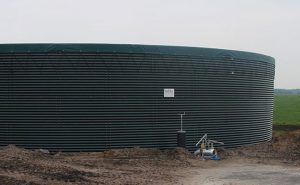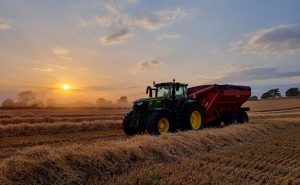How a Contract Farming Agreement Can Help You Reach Your Sustainability Goals

There has been a noticeable shift in attitudes towards sustainable farming in the past few years, and the ripples are being felt amongst those with contract farming agreements also. At one point a focus on organic crops and rewilding were only found on the fringes of the farming or environmental communities but in the words of agricultural advocate Joe Stanley,
Given the worrying statistics and the rise in extreme weather across the globe, it’s easy to understand why sustainable farming is something of a pressing topic.
Creating a Safe Environment
In 2019, the National Farmers Union announced their plans to make farming carbon neutral by 2040, through the use of bold strategies designed to offset emissions. The NFU says that by growing fuel for power stations, then capturing and burying the carbon dioxide produced in the process, could offset three quarters of the agricultural emissions created by the UK. There’s still a need for technological advancements in trapping carbon in soil and reducing emissions from cattle and fertiliser, but there are high hopes for reaching the 2040 goal.
Attending the Groundswell Agricultural Show, a show and conference focused around regenerative farming and conservation, the Environment Secretary, George Eustice, gave a speech where he outlined the future plans to encourage regenerative techniques through new government agri-enviromental schemes. He went on to say how he wanted Britain to be at the forefront of tackling climate change in regards to farming.
With support from farmers and the government, we’re expecting a rise in contract farming agreements that focus on regeneration as much as they do profits. In fact, given the rise in the cost of things like fertiliser and the end of subsidies, many farmers are finding that conventional methods may be producing higher yields, yet the added cost of inputs doesn’t guarantee additional profits.
Developing New Fields
Go back far enough and all farming aligned with what we now think of as organic farming. Older traditions in the agricultural world are making a resurgence as farmers look to ways to combat declines in biodiversity – including both the insect and bird populations. Discussing a National Trust project that aimed to farm sustainably back in 2018, countryside manager, Alan Kearsly-Evans, said of the project,
“We have simply reverted to farming sustainably, like we did back in 1945, and with astounding results,”
“It doesn’t cost us any more – in fact, in time it will save us money – as we won’t need to rely on any other inputs; our method of crop rotation and harvesting actually makes the crops self-controlling.”
Despite this, signing up to a contract farming agreement doesn’t mean we’ll be on your farm with a horse drawn cart, tossing hay with pitchforks. In fact, there’s plenty of information to suggest that the future of farming will involve new technology, including robots (something we covered previously here), drones and growing vegetables indoors, regardless of whether that’s in rural or urban locations. .
In fact, with reports like The Committee on Climate Change Land Use Change report recommending that half of all arable land in the UK be turned to environmental adaptation, vertical greenhouses may be an efficient way of growing the same amount of crops with far less space.
How Contract Farming Can Help You
A contract farming agreement allows us, a third party, to help you make the most of your land and your farm. While you provide the space to do the work, we can provide the labour, the tools and even the supplies, but we also bring a wealth of expertise. When you’ve worked your land for decades, no one knows it better than you – but at least you can rest assured that when you trust in our farming contracts, your land is in good hands.
The prospect of large scale projects or making drastic changes to the way you work can be a daunting thing to go through on your own, but combining your experience with another’s can bring new ideas to the table, and help find solutions to any problems that may arise. If you’re unsure how to make a change on your farm, by working together we can help you find the best way to reach your goals.





